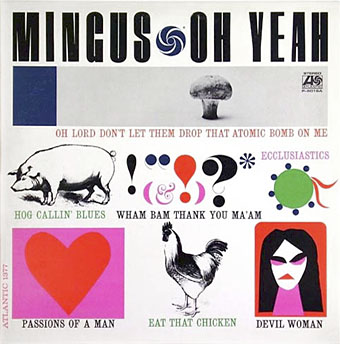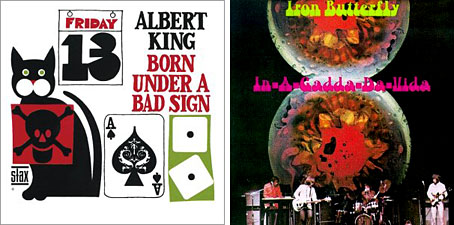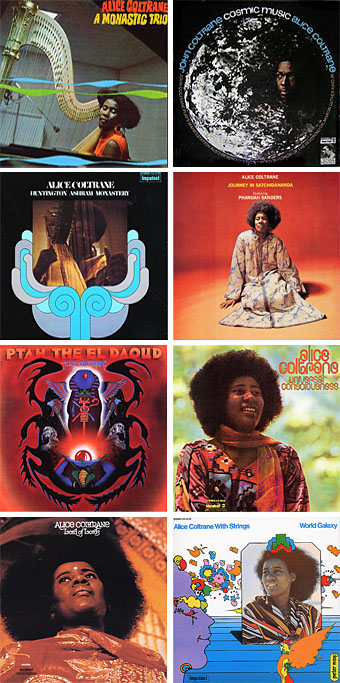
Oh Yeah (1962). Sleeve design by Loring Eutemey.
“People say that I’m hollering. Man, I feel like hollering.” Charles Mingus.
Listening to this great album this week had me searching for the equally great sleeve design from the vinyl edition which vanished from the CD reissue. The cover that replaced it is a dour photo of a gloomy-looking Mingus, completely unsuited to an album full of joyous noise. Happily there’s a Japanese edition that preserves the original design. As far as I can gather Loring Eutemey was a house designer at Atlantic, responsible for many of their jazz sleeves but also providing covers for rock albums including Iron Butterfly’s dumb psychedelic opus, In-A-Gadda-Da-Vida. Lots of playful typography evident in Eutemey’s designs and bold, hand-drawn graphics à la Saul Bass, a style very popular in the Sixties not least because of Bass’s considerable influence.

Designs by Loring Eutemey: Born Under A Bad Sign (1967), In-A-Gadda-Da-Vida (1968).
That playfulness especially suits an album where Mingus set aside his bass to play piano and sing (or, more correctly, holler) his way through seven tracks of energetic craziness. There are some amazing solos here from Rahsaan Roland Kirk, a blind musician famous for playing two saxophones at once, one in each hand. The opening Hog Callin’ Blues is one of my favourite jazz pieces, a number where bop rawness approaches the equivalent rawness of Fifties’ rock’n’roll or Chess blues. Always great to play (loud!) to people who think jazz is all polite cocktail music and studied cool. Mingus recorded lots of great albums, of course, and I imagine this is regarded as a throwaway novelty by many of his more dedicated listeners, but it remains one I keep returning to.
Charles Mingus—piano and vocals
Rahsaan Roland Kirk—flute, siren, tenor sax, manzello, and strich
Booker Ervin—tenor sax
Jimmy Knepper—trombone
Doug Watkins—bass
Dannie Richmond—drums
1 Hog Callin’ Blues (7:26)
2 Devil Woman (9:38)
3 Wham Bam Thank You Ma’am (4:41)
4 Ecclusiastics (6:55)
5 Oh Lord Don’t Let Them Drop That Atomic Bomb On Me (5:38)
6 Eat That Chicken (4:36)
7 Passions Of A Man (4:52)
Elsewhere on { feuilleton }
• The album covers archive

